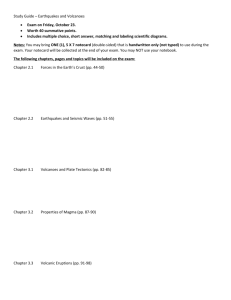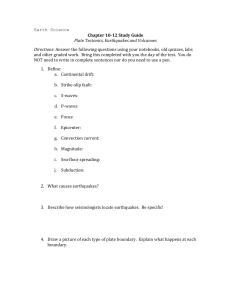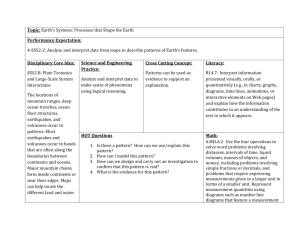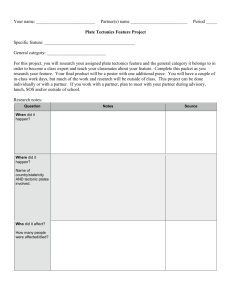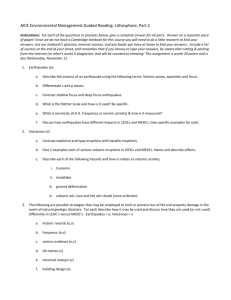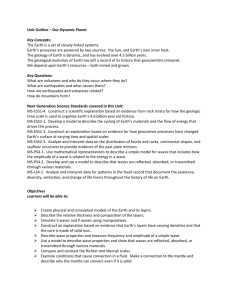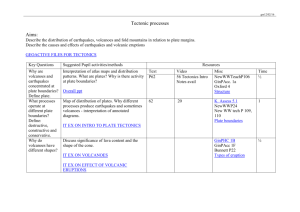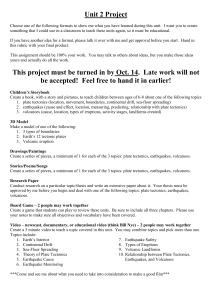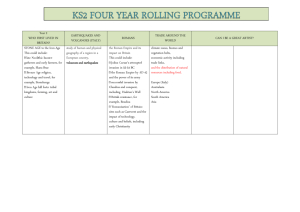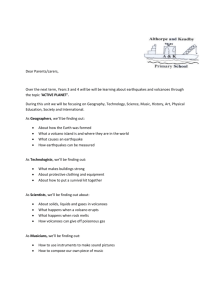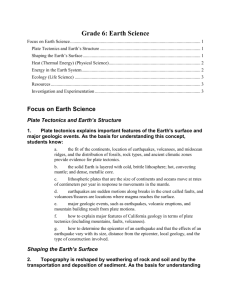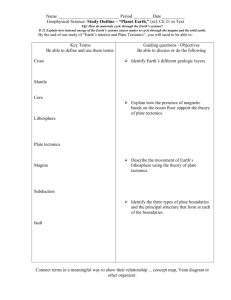Unit – Plate Tectonics, Volcanoes & Earthquakes
advertisement
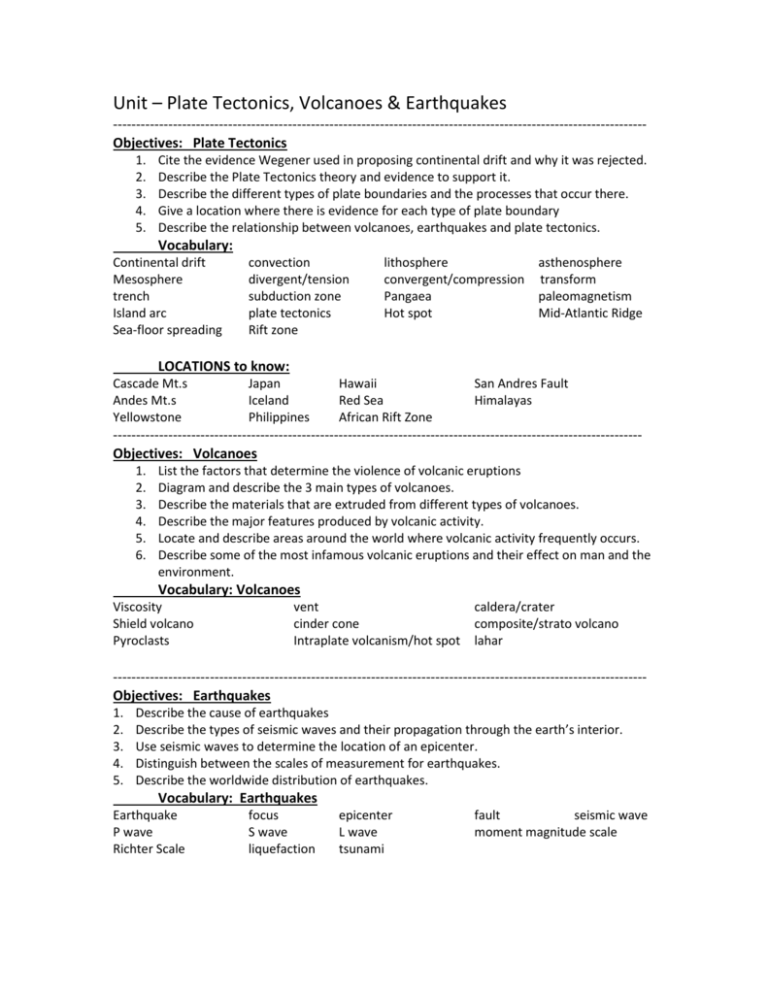
Unit – Plate Tectonics, Volcanoes & Earthquakes -------------------------------------------------------------------------------------------------------------------Objectives: Plate Tectonics 1. 2. 3. 4. 5. Cite the evidence Wegener used in proposing continental drift and why it was rejected. Describe the Plate Tectonics theory and evidence to support it. Describe the different types of plate boundaries and the processes that occur there. Give a location where there is evidence for each type of plate boundary Describe the relationship between volcanoes, earthquakes and plate tectonics. Vocabulary: Continental drift Mesosphere trench Island arc Sea-floor spreading convection divergent/tension subduction zone plate tectonics Rift zone lithosphere convergent/compression Pangaea Hot spot asthenosphere transform paleomagnetism Mid-Atlantic Ridge LOCATIONS to know: Cascade Mt.s Andes Mt.s Yellowstone Japan Iceland Philippines Hawaii Red Sea African Rift Zone San Andres Fault Himalayas ------------------------------------------------------------------------------------------------------------------Objectives: Volcanoes 1. 2. 3. 4. 5. 6. List the factors that determine the violence of volcanic eruptions Diagram and describe the 3 main types of volcanoes. Describe the materials that are extruded from different types of volcanoes. Describe the major features produced by volcanic activity. Locate and describe areas around the world where volcanic activity frequently occurs. Describe some of the most infamous volcanic eruptions and their effect on man and the environment. Vocabulary: Volcanoes Viscosity Shield volcano Pyroclasts vent cinder cone Intraplate volcanism/hot spot caldera/crater composite/strato volcano lahar -------------------------------------------------------------------------------------------------------------------Objectives: Earthquakes 1. 2. 3. 4. 5. Describe the cause of earthquakes Describe the types of seismic waves and their propagation through the earth’s interior. Use seismic waves to determine the location of an epicenter. Distinguish between the scales of measurement for earthquakes. Describe the worldwide distribution of earthquakes. Vocabulary: Earthquakes Earthquake P wave Richter Scale focus S wave liquefaction epicenter L wave tsunami fault seismic wave moment magnitude scale
